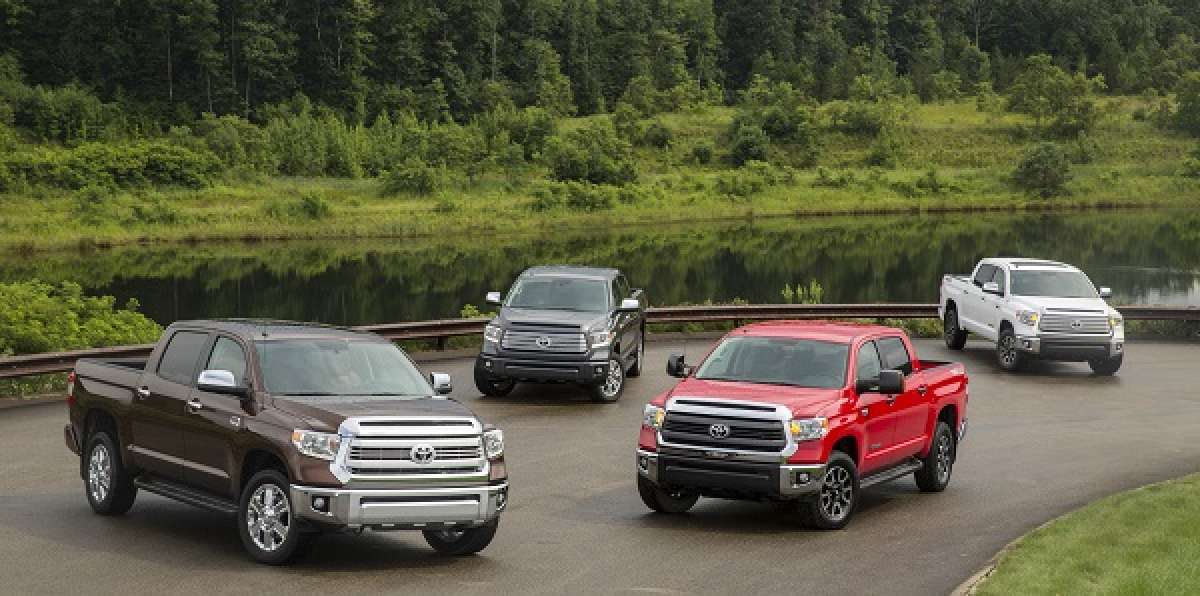Suddenly, after years of pickups with mileage in the area of 9 MPG to 15 MPG in real world use, every manufacturer is trying to have the most fuel efficient pickup truck. Using all the marketing and engineering tricks possible, Ford, Chevy, Nissan, and Ram are doing everything they can to publish a high fuel efficiency number and some sort of marketing catch phrase like “most fuel efficient full size pickup truck in America.” Why shouldn’t the Toyota Tundra join the fun?
Diesels are great. In trucks the trade-offs of a diesel are easy to ignore. They do get better miles per gallon in some situations compared to gasoline engines with the same torque. Maybe even 20% better fuel efficiency. So, who cares if they also use a fuel that costs 20% more? All that matters is that high fuel efficiency number. Nobody buys two-wheel-drive pickups, but who cares? Manufacturers can make a few 2WD trucks, drop in their weakest engine, and create a headline, if not a real truck.
Toyota can also play along if it chooses. Currently, Toyota’s base engine in the Tundra is a 4.0 liter V6 gasoline engine that can produce 270 HP and 278 lb-ft of torque. Not at all bad for a base truck. However, in 2WD form, the base truck only gets 1 MPG more than the 4.6 liter V8. That is hardly motivation to buy the V6.
New to the Toyota family is a 2.0 liter, 4-cylinder, engine with a twin scroll turbocharger. This new engine will first be used in the new Lexus NX 200t compact crossover due out this fall. Next it will appear in the Lexus IS 200t compact sports sedan. Of course firm specifications are not yet available, but 278 ft-lb of torque should be very easy for this engine to achieve. Almost all the similarly designed engines in the marketplace have this level of torque. That would match the torque of the V6 Toyota offers now and would increase the EPA estimated mileage. Toyota is also planning a new 6 speed automatic to be mated to this new small turbo engine. Tundra now has only a 5 speed. Fuel economy could improve 10% to 15%.
The question really is, has Ford’s wildly successful use of smaller turbocharged engines prepared truck buyers for such a move? Remember, the primary goal is the headline. That gets buyers into the showroom. They then drive a variety of trucks and bring home the one they really want. If this is not Toyota’s best bet for a fuel sipping, low-cost pickup for commercial and fleet use, what is?






Comments
I think a 2.0 liter turbo
Permalink
I think a 2.0 liter turbo would be better suited for the Tacoma. Toyota should develop a diesel-hybrid for the Tundra to get maximum MPG but I would imagine it would also command a maximum price tag as well. Nonetheless, I'm open to see how a full-size truck will perform with a small turbo engine before I'd make a final decision. I won't have to wait long because Ford is coming out with a 2.7 liter ecoboost engine for the 2015 F-150.
Indeed, Ford reports that
Permalink
In reply to I think a 2.0 liter turbo by DrLou (not verified)
Indeed, Ford reports that currently 42% of its F-Series vehicles are turbocharged. Given that many of the F-Series are the ginormous work ones with diesel and massive V8s, our guess is that over half of the Ford trucks in the Tundra's market niche are turbocharged. Not 4-cyliner turbos though and that is a big leap.